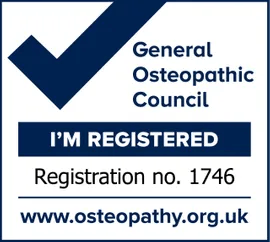Registered Osteopath & Naturopath
Naturopathic treatments & Food Intolerance Testing
What is Naturopathy?
Naturopathy is a multi-disciplinary approach to healthcare that recognises the body's innate power to heal itself by treating the whole person and not just the symptoms. It aims to promote, restore and maintain health.
What does a naturopathic consultation involve?
A Naturopathic Consultation involves a full case history being taken and an analysis made of your lifestyle and environment. Treatment will involve assisting in creating an individualised diet and lifestyle. This will include:
- Dietary advice
- Nutritional supplements
- Detoxification and elimination diets
- Hydrotherapy
- Relaxation techniques
- Stress management.
For more information about Naturopathy visit The General Council and Register of Naturopaths. Call Fiona today to book an appointment with a trained Naturopath.
What is 'food allergy'?
What is 'food intolerance'?
A 'Food Allergy' is usually an acute, often severe, occasionally life-threatening reaction to food. It occurs within seconds or minutes, sometimes to the tiniest trace of food and can be picked up in a blood test by measuring IgE antibodies.
It is often confused with the term 'Food Intolerance'. This is usually a more chronic response with symptoms often slow to develop (sometimes days) and may last for weeks. The reaction can therefore be very difficult to pick up. However, it also mediates an antibody response (IgG) which can also be measured in a blood test.
Symptoms
The antibodies combine with the food to form complexes. The body should break these complexes down. However, if the immune system is weak or overworked, they can migrate to different parts of the body and cause reactions. These can be wide-ranging, for example:
- Gastrointestinal: abdominal pain, bloating, constipation, diarrhoea, difficulty controlling weight, wind, water retention.
- Respiratory: Sinusitis, asthma
- Skin: Eczema, dermatitis, rashes, itchy skin.
- Structural: Joint pain, stiffness, weakness.
- Neurological: Headaches, anxiety, tiredness, poor concentration, hyperactivity.
What does the test involve?
In order to see whether the body reacts to a certain food, a blood sample is taken. This is a simple pin prick from the finger or thumb which provides the small amount needed. This is first diluted then applied to a plate containing various food protein samples. An antibody detector solution is applied and finally the developer solution. The whole process takes about forty-five minutes at which stage the results are finalised.
The test will be carried out by Fiona Robertson who has over 28 years of experience in treating dietary problems.
Which foods are tested?
Cereals: Corn, durum wheat, gluten, oats, rice, rye, wheat.
Nuts and beans: Almond, brazil, cashew, cocoa bean, peanut, legume mix (pea, lentil, haricot), soya, walnut.
Meats: Beef, chicken, lamb, pork.
Fish: Freshwater mix (salmon, trout), Shellfish mix (shrimp, prawn, crab, lobster, mussel). Tuna, white fish mix (haddock, cod, plaice)
Vegetables: Broccoli, cabbage, carrot, celery, cucumber, leek, peppers (red, yellow, green), potato.
Fruits: Apple, blackcurrant, grapefruit, melon mix (cantaloupe, watermelon), olive, orange & lemon, strawberry, tomato.
Other: egg (whole), cow's milk, garlic, ginger, mushroom, tea, yeast.
Results
Results will be listed in a table which will be available to take away at the end of the session. You will be able to see if you have had any reaction to the foods, and where there is a strong or mild reaction.
A website link will also be given after the test result with a great deal of information about the foods to avoid and when certain food intolerances have been detected.
Appointments
The cost of the appointment will be £160 which includes one hour to carry out the test and 30 minutes to discuss the test results.
Follow up sessions can be organised if you would like further help to work out a suitable dietary plan.
If you have any concerns about the test or results, seek medical advice.
Contact
Find
Radcliffe Road, Winchmore Hill, London, N21 2SD
Business Hours
Monday: 9:00 am - 5:00 pm
Tuesday: 9:00 am - 5:00 pm
Wednesday: Closed
Thursday: 9:00 am - 5:00 pm
Friday: Closed
Saturday: Closed
Sunday: Closed


